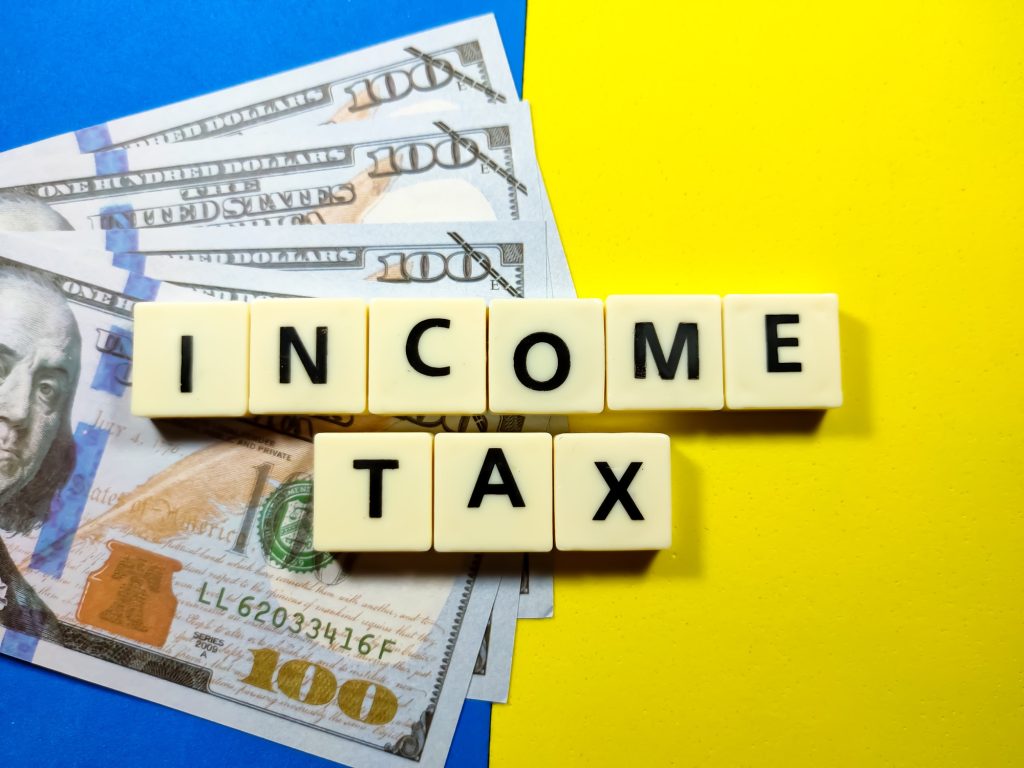Does Tennessee Have a State Income Tax? The Truth Every Resident and Business Needs to Know
When considering a move to a new state, whether for personal reasons or business, one of the first questions that comes to many people’s minds is: “Does Tennessee have a state income tax?” This is a crucial question that can significantly influence the financial decisions of individuals and businesses. At Jimenez Consulting Tax Services, we understand the importance of informed tax planning. That’s why we’ve prepared this comprehensive guide to break down everything you need to know about the tax landscape in the “Volunteer State,” especially concerning income taxes.
Tennessee’s Fiscal Allure: A General Overview
Tennessee has earned an enviable reputation as a state with a relatively low tax burden, making it an attractive destination for many. This perception is based on a fiscal reality that, at first glance, seems very beneficial. However, as with any tax system, there are nuances that deserve thorough exploration.
The Big News: No State Income Tax on Wages and Salaries
The direct answer to the main question is a resounding: No, Tennessee does not have a state income tax that levies personal wages and salaries. This is the most distinctive and appealing feature of its tax system for most residents. For employees, this means their paychecks aren’t subject to an additional state deduction for income taxes, which can result in a higher net disposable income compared to states that do have them.
This absence of an income tax has long been used as a tool to attract both residents and businesses. The promise of keeping a larger portion of earned income is a powerful economic incentive.
A Bit of History: The Hall Tax and Its Demise
While Tennessee doesn’t tax wages, there was an important exception in its tax history: the “Hall Tax.” This tax, which generated much discussion and debate over the years, levied income from interest and dividends.
The Hall Tax was introduced in 1929 and named after Frank Hall, a state representative who proposed it. Its goal was to generate revenue for the state without imposing a general income tax. Over time, it became a significant source of revenue, though also a point of contention for many.
However, as of January 1, 2021, the Hall Tax was fully repealed. This means Tennessee no longer taxes interest and dividend income at the state level. This repeal marked a significant milestone in Tennessee’s fiscal policy, solidifying its status as one of the few states without any form of personal income tax.
How Does Tennessee Fund Its State Services Without an Income Tax?
This is a logical question. If the state doesn’t collect revenue through a personal income tax, how does it fund its roads, schools, emergency services, and other state infrastructure and programs? The answer lies in a strong reliance on other revenue sources.
Sales Tax: Tennessee’s Fiscal Pillar
The primary revenue driver for the state of Tennessee is the sales tax. Tennessee has one of the highest sales tax rates in the country, and this is a key factor in its funding model.
- State Sales Tax Rate: The current state rate is 7%.
- Local Sales Tax Rates: In addition to the state rate, Tennessee cities and counties have the authority to impose their own sales tax rates. These local rates can vary but typically range between 0% and 2.75%.
- Combined Rate: This means the combined sales tax rate (state and local) can reach a maximum of 9.75% in some jurisdictions.
This reliance on sales tax has important implications. While income isn’t taxed, consumers pay a significant percentage of tax on most goods and services they purchase. This can have a regressive impact, as lower-income individuals tend to spend a larger proportion of their income on taxable goods and services.
Property Taxes: A Local Level Burden
While not a state income tax, property taxes are another crucial source of revenue, managed and collected at the county and municipal levels. Revenue from these taxes goes towards funding local services like schools, libraries, parks, and fire departments.
- Assessment and Rates: Your property’s value is assessed, and a tax rate (known as a “mill rate” or “millage rate”) is applied to that assessed value.
- Local Variability: Property tax rates vary significantly among different counties and municipalities in Tennessee. It’s essential to research the specific rates for the locality where you plan to reside.
- Housing Affordability: While Tennessee has relatively low property taxes compared to many other states, it’s a recurring cost that must be considered when evaluating housing affordability.
Other Taxes and Fees for State Revenue
In addition to sales tax and property taxes, Tennessee collects revenue through a variety of other taxes and fees, including:
- Fuel Tax: Taxes gasoline and diesel, funding road maintenance and construction.
- Tobacco and Alcohol Taxes: Specific taxes on these goods.
- Franchise and Excise Tax: This is a significant tax for businesses.
- Licenses and Permits: Revenue generated from various professional and business licenses.
- Inheritance and Gift Taxes: Tennessee does not have a state inheritance tax or a state gift tax.
Implications for Businesses: The Franchise and Excise Tax
For businesses operating or planning to establish themselves in Tennessee, the absence of a personal income tax is a significant advantage. However, it’s vital to understand the Franchise and Excise Tax, which is the primary tax affecting corporations and other business entities in the state.
Franchise Tax
- Tax Base: This tax is based on the greater of the following: the business’s net worth or the value of tangible property in Tennessee.
- Rate: The rate is $0.25 per $100 of the tax base.
- Purpose: This tax is compensation for the privilege of doing business in Tennessee.
Excise Tax
- Tax Base: This tax applies to the business’s net earnings derived from Tennessee.
- Rate: The rate is 6.5% of net earnings.
- Purpose: Similar to a corporate income tax, it taxes the profitability of the business.
It is critical for businesses, especially those with a physical presence or revenue-generating activities in Tennessee, to understand how these taxes apply to their structure and operations. Proper tax planning is crucial for optimizing the business tax burden.
For detailed and specific information on these taxes, it’s always advisable to consult the official resources of the Tennessee Department of Revenue.
Who Benefits Most from Tennessee’s Tax Structure?
Tennessee’s tax structure, with its emphasis on consumption and property taxes rather than income, has different implications for various groups of people and businesses.
Retirees
Tennessee is a popular destination for retirees, and one of the main reasons is the absence of a state income tax. This is particularly beneficial for those who rely on income from pensions, 401(k)s, IRAs, and Social Security, as these incomes aren’t taxed at the state level. The repeal of the Hall Tax was also excellent news for retirees with investment portfolios generating interest and dividends.
High-Income Individuals with Low Consumption Spending
Individuals with high incomes who manage to maintain a low-consumption lifestyle, or who invest a large portion of their income in assets not subject to sales tax, may find Tennessee to be very fiscally advantageous. Their primary concern would be property taxes if they own high-value real estate.
Businesses with Tight Profit Margins
For businesses, the tax burden can vary. While there’s no general corporate income tax like in other states, the Franchise and Excise Tax can be significant. Businesses with tight profit margins might find the 6.5% rate on net earnings challenging, while those with less capital-intensive business models might see advantages in the Franchise Tax.
Comparison with Other States: Is Tennessee Truly a Tax Haven?
To fully understand Tennessee’s tax appeal, it’s helpful to compare it with states that do have a state income tax.
High Income Tax States
States like California, New York, Oregon, and Hawaii have some of the highest income tax rates in the country, which can mean a significant portion of gross income goes to state taxes. For an individual earning a high salary, moving from one of these states to Tennessee could result in a considerable increase in their net disposable income.
States with No Income Tax (or Limited Tax)
Tennessee joins a select group of states that do not impose a general personal income tax. Other states in this category include:
- Alaska
- Florida
- Nevada
- South Dakota
- Texas
- Washington
- Wyoming
- New Hampshire (only taxes interest and dividends, though that’s also being phased out)
Each of these states has its own mix of taxes to fund its operations, with many of them relying heavily on sales and property taxes, similar to Tennessee.
Additional Considerations and Tax Tips
Even though Tennessee doesn’t have a state income tax, tax planning remains essential.
Federal Taxes
It’s crucial to remember that regardless of which state you live in, you will still be subject to federal income taxes (IRS). This includes federal income tax, Social Security, and Medicare. The absence of a state income tax does not exempt Tennessee residents from their federal tax obligations.
Residency Planning
If you’re considering moving to Tennessee to take advantage of its tax benefits, it’s important to establish residency clearly and demonstrably. This involves actions such as:
- Obtaining a Tennessee driver’s license.
- Registering your vehicles in Tennessee.
- Opening bank accounts in Tennessee.
- Voting in Tennessee.
- Spending the majority of the year in Tennessee.
The Importance of a Tax Advisor
Navigating the tax landscape can be complex, even in states with seemingly simpler systems like Tennessee. To ensure you’re taking full advantage of tax benefits and complying with all your obligations, it’s highly recommended to seek advice from a qualified tax professional. At Jimenez Consulting Tax Services, we offer expertise in individual and business tax planning, helping you optimize your financial situation.
Conclusion: Tennessee and Its Appealing Tax Model
In summary, the answer to the question “Does Tennessee have a state income tax?” is no, at least not for personal wages and salaries. The repeal of the Hall Tax has further solidified this position, making Tennessee a personal income tax-free state in almost all respects. However, this advantage is balanced by a greater reliance on sales taxes and local property taxes, as well as the Franchise and Excise Tax for businesses.
For individuals and businesses looking to maximize their net income and operate in a favorable tax environment, Tennessee presents an attractive proposition. However, a comprehensive understanding of all state and local revenue sources is crucial for successful financial and tax planning. At Jimenez Consulting Tax Services, we’re committed to providing you with the clarity and support you need to make informed decisions in the ever-changing world of taxes.



